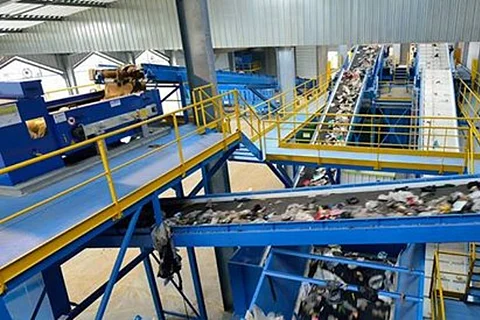

On April 25, Karnataka Deputy Chief Minister G Parameshwara announced that an MoU had been signed with the CEO of a French company, 3wayste, to set up the waste to energy (WTE) plant. The five-megawatt capacity plant will be set up near Electronic City in Bengaluru. However, city-based activists are objecting to the plant on grounds of health risks, sustainability and governance.
These developments come at a time when the city’s waste management problem remains unresolved, with the Karnataka High Court pulling up BBMP time and again for the same.
While WTE plants may reduce garbage dumping or burning in the streets, experts warn of its less apparent harms.
Health risks
Aishwarya Sudhir, Air Quality and Health Programme Lead - Bengaluru, Health & Environment Alliance (HEAL) pointed out that world over, there have been concerns over these WTE plants. One major concern is the huge amount of bottom ash they generate. Bottom ash is essentially that part of the fuel – in this case, waste – that is non-combustible.
“Over the years, there has been no real solution for the bottom ash that WTE plants generate. It all ends up adding to the air pollution in our cities. Further, the combustion process releases many gases into the atmosphere, depending on the constitution of the waste being burnt. The gases could also contain heavy metals and result in other noxious emissions,” she said.
“Segregating waste and addressing it at the source irrespective of the tedious management that it demands remains the safest method of waste management. There have been several examples in the past, such as the Okhla WTE plant, that we need to learn from and ensure that we do not go down that path,” she added.
The Okhla plant in the national capital was fined Rs 25 lakh in 2016 by the National Green Tribunal for polluting the environment and releasing toxins in the air, which affected the health of those living around the plant.
Sustainability
Vinay Sreenivasa, a Bengaluru-based lawyer-activist said having a WTE plant is opposed to the basic idea of waste management – to reduce, recycle and reuse, and manage waste locally.
“Once there are WTE plants, there is no motivation to segregate as you will burn the waste when it’s mixed only. It is an easy fix; it is not going to solve the problem in the long term. So, the amount of waste is going to increase,” he said.
Against local governance
The other prime opposition to the project is that it’s not part of the BBMP’s Solid Waste Management (SWM) policy and violates the Swacch Sarvekshan guidelines of the union government.
Sandeep Anirudhan, an activist advocating sustainable living, said the move also a violates the 74th amendment of the Constitution which guarantees public consultation over matters concerning local governance.
“There is no scientific study, holistic evaluation or even cost-benefit analysis done before going ahead with the project. Then they (the political class) steamroll these over citizens’ rights, by not even holding a public consultation. This is nothing but highjacking of democracy,” he argued.
Legal hurdles
A senior lawyer at the Karnataka High Court argued that the proposed plant is illegal and contrary to BBMP’s submissions to the Karnataka High Court. “The BBMP had said in the court that it will segregate waste at source and not burn it elsewhere outside the city,” he said.
When asked about this, a top BBMP official said that the BBMP did not have much say in the project and was forced into it due to external obligations. “The only thing the BBMP had to do here was to finalise the agreement. We have put strong conditions to ensure that the company performs on ground,” he said. “It is not that WTE plants are illegal but it ideally should be the last option,” he added.
The official further explained, “Urban Development Department had floated a tender for Waste to Energy plants in 2017 and there were no takers. The French company had approached them and later there were discussions between the governments. As part of this, they were exempted from the tendering process and it became a zero-cost proposal for us. They will install their own equipment and all we have to ensure is that waste of 200 metric tonnes is delivered to them at free of cost.”
Feasibility
In addition to the considerable opposition to setting up of WTE plants, a recent analysisby the Centre for Science and Environment has shown half of the existing WTE plants in India have been shut on grounds of feasibility. Firstly, because WTE plants do not get many buyers for the power they generate due to cheaper alternatives being available. And secondly, costs for maintaining the plants is higher in India, owing to the high moisture and low-calorie content of India’s municipal waste compared to other parts of the world.
Company’s response
When TNM approached Robert Filipp, CEO of 3Wayste with these concerns, he said that the plant will follow both Indian and European standards of emission and abide by the applicable laws. "We support waste segregation but unfortunately people are not so compliant as we imagine. We recycle everything and only use for the energy the part that is of high calorific value and has no other use," he said.
However, a BBMP official said that unless waste is segregated at source, it is difficult to understand what to compost, reuse and recycle respectively. “We do not know what will happen if this issue with mixed waste is challenged in court or NGT,” the official said.